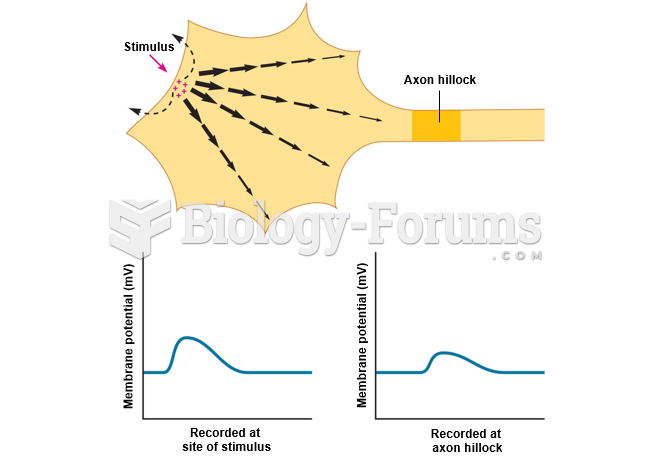|
|
|
There are more bacteria in your mouth than there are people in the world.
Pregnant women usually experience a heightened sense of smell beginning late in the first trimester. Some experts call this the body's way of protecting a pregnant woman from foods that are unsafe for the fetus.
Medication errors are more common among seriously ill patients than with those with minor conditions.
Prostaglandins were first isolated from human semen in Sweden in the 1930s. They were so named because the researcher thought that they came from the prostate gland. In fact, prostaglandins exist and are synthesized in almost every cell of the body.
After 5 years of being diagnosed with rheumatoid arthritis, one every three patients will no longer be able to work.







